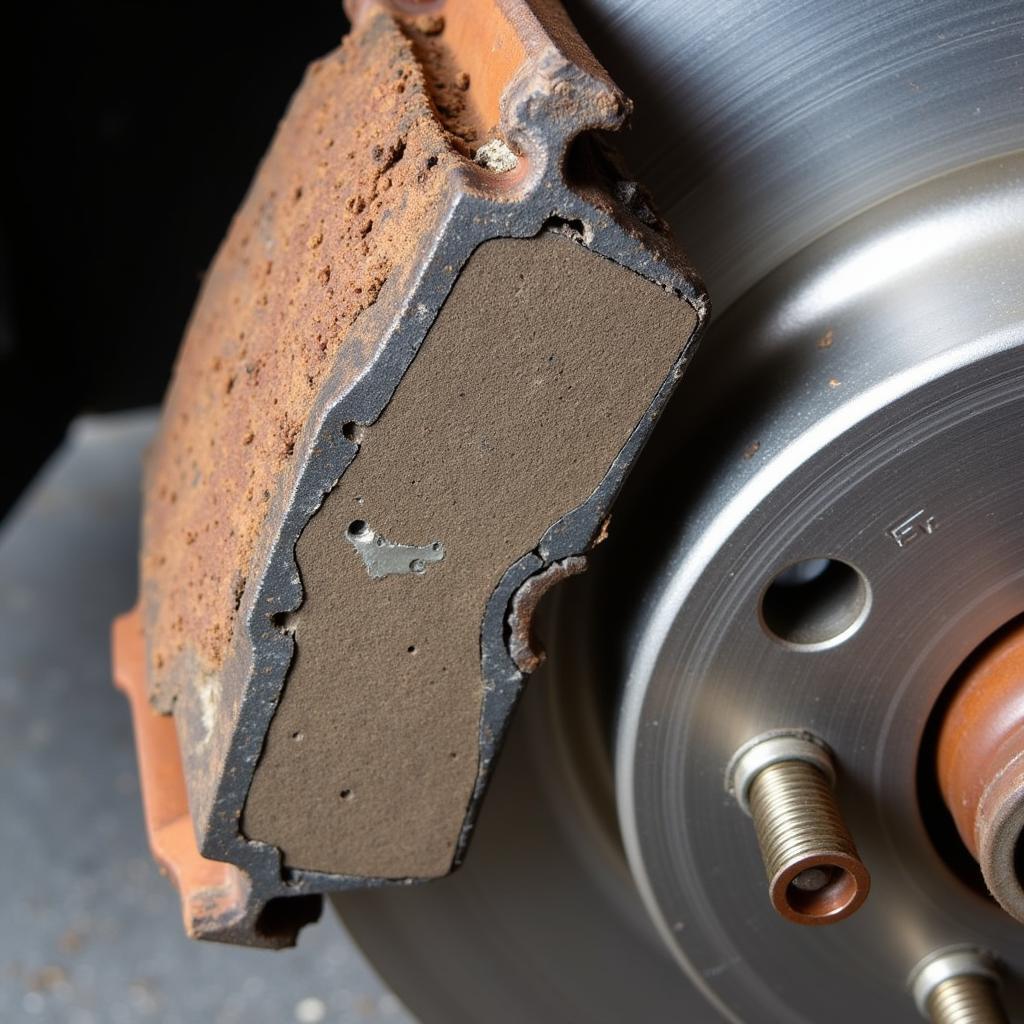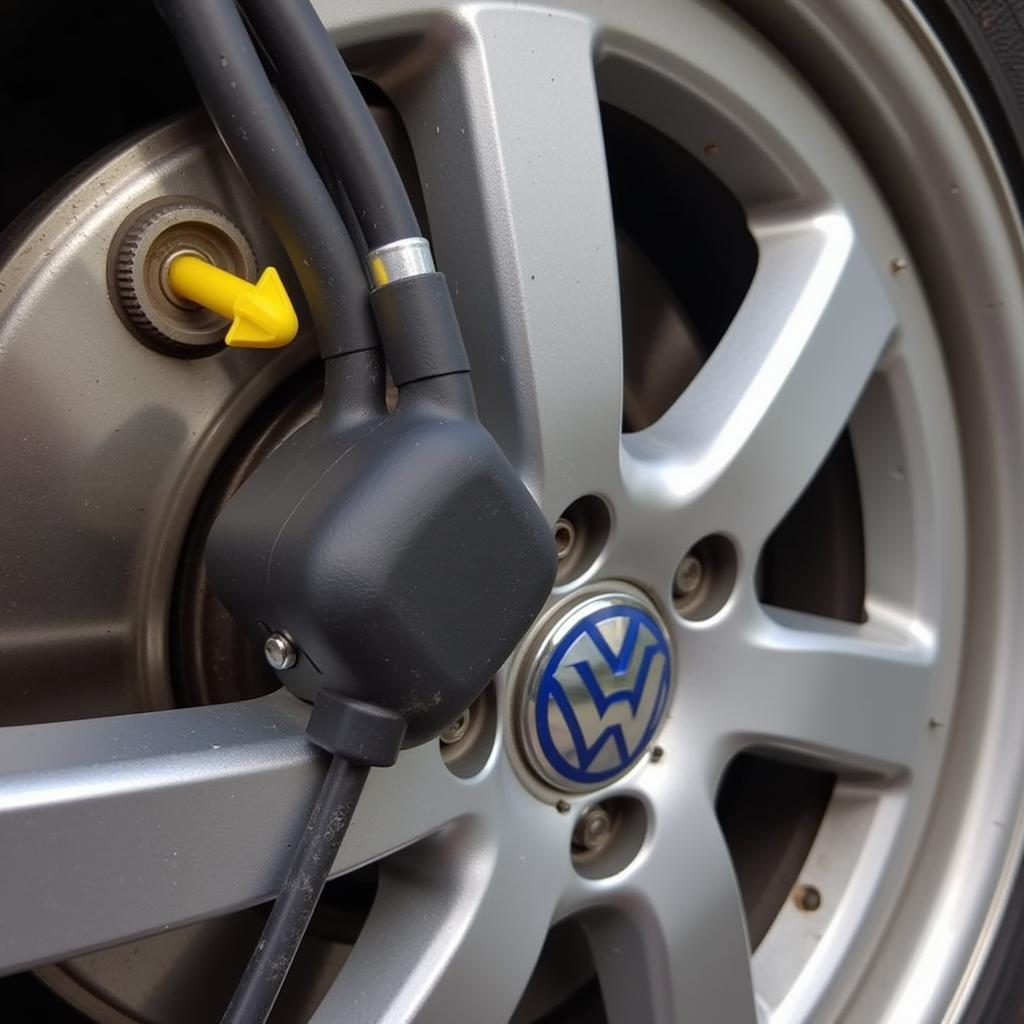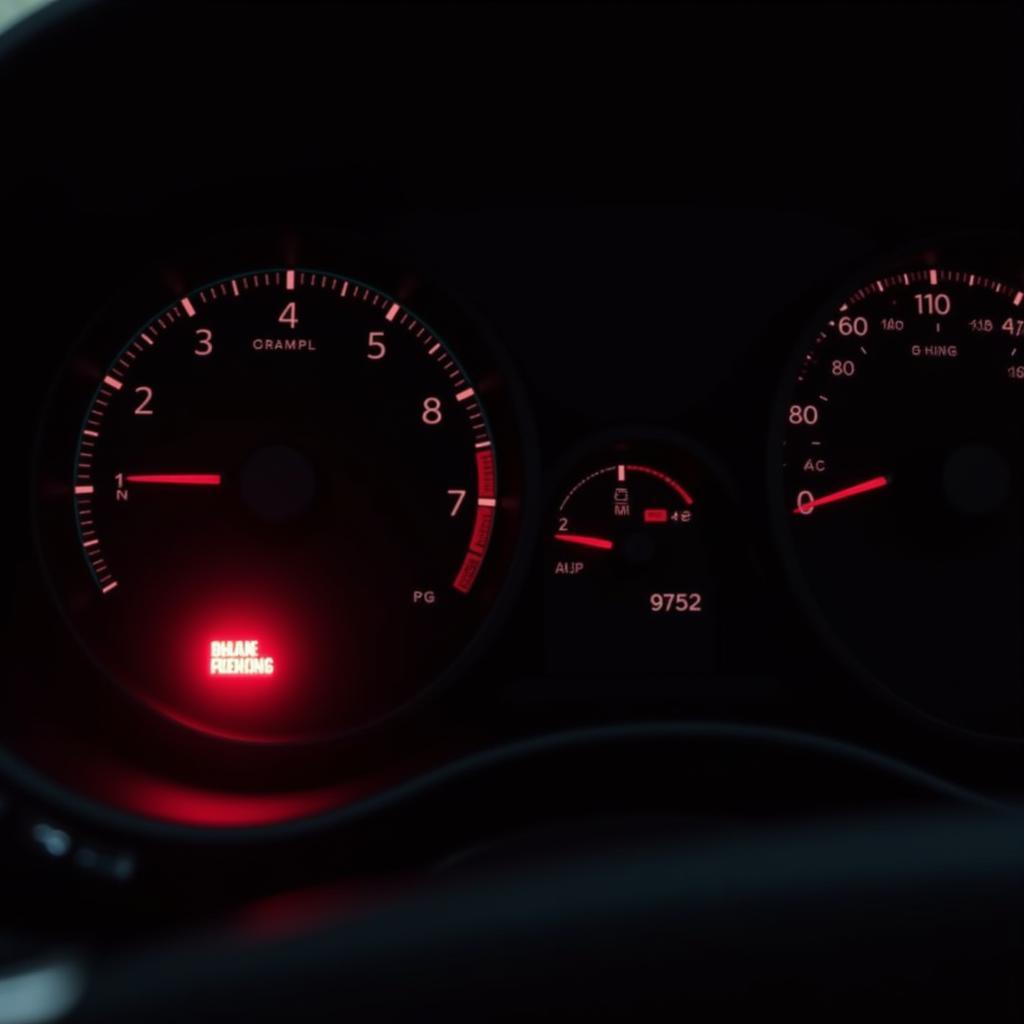The red brake warning light on your VW Golf Mk4 dashboard is a safety feature you should never ignore. It indicates a potential issue with your braking system, requiring immediate attention to ensure your safety and that of others on the road. While it can be alarming to see this warning, understanding the common causes can help you diagnose and resolve the issue effectively.
This comprehensive guide delves into the intricacies of “VW Golf Mk4 brake fault warning,” providing valuable insights to help you navigate this common problem.
Common Causes of a VW Golf Mk4 Brake Fault Warning
Several factors can trigger the brake fault warning on your VW Golf Mk4. Here’s a breakdown of the most common culprits:
1. Worn Brake Pads
What it means: Your brake pads have worn down to a point where they need replacing.
Why it happens: Brake pads naturally wear down with use. Frequent braking, aggressive driving habits, and driving in heavy traffic conditions can accelerate wear and tear.
How to identify: A high, squealing noise when applying brakes is a strong indicator of worn brake pads. You may also notice a grinding noise in severe cases.
 Worn Brake Pads on VW Golf Mk4
Worn Brake Pads on VW Golf Mk4
2. Low Brake Fluid Level
What it means: The brake fluid reservoir in your master cylinder is running low.
Why it happens: Low brake fluid is often a sign of a leak in the braking system. It can also be due to worn brake pads, as the calipers need more fluid to engage properly with thinner pads.
How to identify: Check your brake fluid reservoir. If the fluid level is below the “MIN” mark, it needs topping up.
3. Faulty Brake Fluid Sensor
What it means: The sensor that detects the brake fluid level is malfunctioning.
Why it happens: Over time, the brake fluid sensor can wear down or become faulty due to exposure to brake fluid and extreme temperatures.
How to identify: A faulty sensor might trigger a warning light even with sufficient brake fluid.
4. ABS Issues
What it means: There’s a problem with your Anti-lock Braking System (ABS).
Why it happens: This could be due to a faulty ABS sensor, a malfunctioning ABS control module, or an issue with the wiring.
How to identify: The ABS warning light may illuminate on your dashboard in addition to the brake warning light.
 VW Golf Mk4 ABS Sensor
VW Golf Mk4 ABS Sensor
5. Brake Caliper Problems
What it means: One or more of your brake calipers are sticking or seized.
Why it happens: Corrosion, dirt, or debris build-up can cause the caliper pistons to seize, preventing the brake pads from releasing correctly.
How to identify: You might experience pulling to one side when braking, a burning smell, or a dragging sensation when driving.
6. Master Cylinder Failure
What it means: The master cylinder, responsible for converting the brake pedal force into hydraulic pressure, is not working correctly.
Why it happens: Internal seals within the master cylinder can wear out, leading to fluid leaks and reduced braking efficiency.
How to identify: This usually manifests as a spongy or soft brake pedal feeling.
What to Do When Your VW Golf Mk4 Brake Warning Light Comes On
- Stop the car immediately. Do not continue driving with a brake warning light on.
- Check the brake fluid level. If it’s low, carefully top it up and inspect for leaks.
- Inspect the brake pads. If you suspect they’re worn, have them checked by a mechanic.
- Don’t attempt to drive the car if you suspect a serious brake problem. Call a tow truck and have your VW Golf Mk4 transported to a trusted mechanic or dealership for a thorough diagnosis and repair.
Remote Diagnostics and Software Solutions for VW Golf Mk4 Brake Issues
In today’s digitally advanced world, remote diagnostics and software solutions play a crucial role in resolving car issues, including brake problems.
- Remote Diagnostics: Specialized software can interface with your VW Golf Mk4’s onboard computer remotely, retrieving fault codes and data related to the brake system. This allows expert technicians to assess the problem remotely and provide initial guidance.
how to remove brake pad warning light bmw
- Software Updates and Programming: Sometimes, a software glitch or an outdated module might trigger false brake warnings. Remote software updates can rectify such issues, ensuring optimal brake system performance.
remove anti lock brake warning light in instrument cluster gmt800
Preventive Maintenance for a Healthy Braking System
Prevention is always better than cure. Regular maintenance can significantly reduce the risk of encountering brake problems with your VW Golf Mk4:
- Regular Brake Inspections: Have your brakes inspected by a qualified mechanic at least once a year or as recommended in your owner’s manual.
- Timely Brake Fluid Flush: Brake fluid should be flushed and replaced every 2-3 years or as recommended by your manufacturer.
- Quality Brake Pads: Invest in high-quality brake pads that offer better performance and longevity.
- Mindful Driving Habits: Avoid harsh braking and driving aggressively to minimize wear and tear on your brakes.
Conclusion
Addressing a “VW Golf Mk4 brake fault warning” promptly is paramount for your safety and the longevity of your vehicle. While some causes might seem minor, any issue within your braking system necessitates immediate attention. By understanding the common causes, utilizing remote diagnostics when available, and adhering to a strict preventative maintenance schedule, you can ensure optimal brake performance and enjoy peace of mind every time you hit the road.
FAQs about VW Golf Mk4 Brake Fault Warnings
1. Can I drive my VW Golf Mk4 with the brake warning light on?
It is highly discouraged. Driving with a brake warning light can be incredibly dangerous.
2. How much does it cost to fix a brake fault on a VW Golf Mk4?
Repair costs vary depending on the underlying issue. A simple brake pad replacement is less expensive than repairing or replacing a faulty ABS control module.
what do warn brake pads look like on a car
3. How often should I replace my VW Golf Mk4 brake pads?
Brake pad lifespan varies greatly depending on driving style and conditions. As a rule of thumb, have them checked every 10,000-20,000 miles.
4. Can I add any brake fluid to my VW Golf Mk4?
Always use the brake fluid type recommended in your owner’s manual. Using the wrong type can damage your braking system.
5. Is it normal for the brake warning light to flicker occasionally?
No, a flickering brake warning light usually indicates a more serious problem that requires immediate attention.

